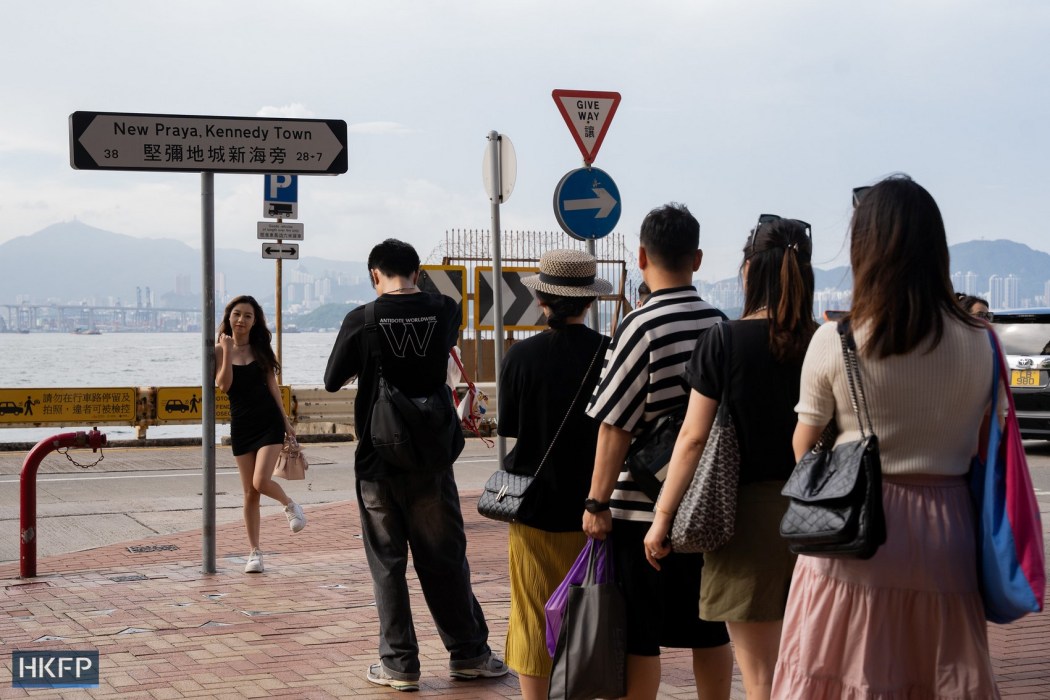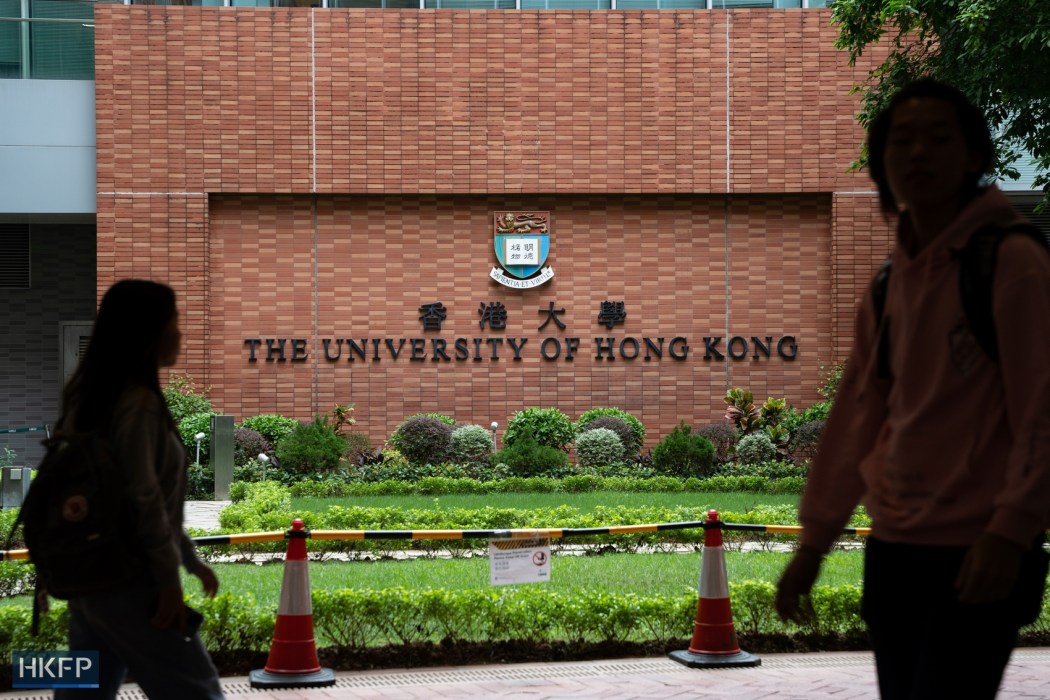The University of Hong Kong (HKU) will soon require tourists to register ahead of entering the campus, amid student and staff complaints over an increasing number of visitors coming to the school to take photos and sight see.

Starting from May, all tourists must register in advance to visit the campus on Monday to Saturday from 8 am to 6.30 pm, the university announced in a statement on Friday. Visits outside of those time frames, however, are permitted without registration.
According to the rules, which the university called the “tourist flow management scheme,” tourists can only book one visit once every 14 days. The full names and the last four digits of their identity documentation must be provided to complete the registration.
The university said that people who are invited to the campus, approved service providers, and “community users” do not need register in advance.
Successful registrants must show the QR code generated from the registration system, and their travel document, to enter the campus. When HKFP logged into the registration system on Sunday night, all time slots on May 2 and May 3 had already been fully booked.

The guidelines state that tourists are not allowed to enter “restricted areas without authorisation” such as libraries, student residential halls, faculty buildings and office areas.
It also asked all tourists to comply with Hong Kong laws and follow the instructions of university staff, as well as to respect the privacy of staff and students by not taking photographs without their consent.
“Abide by social norms, protect the campus environment, vegetation, and cultural relics, and do not disturb the normal teaching, research, and campus activities of the University,” HKU wrote in its registration instructions.
New tourism trend
Hong Kong’s universities have seen an increasing number of tourists since the city reopened its borders following the relaxation of Covid-19 rules early last year. The number of mainland tourists has recovered more rapidly than international visitors, with many looking to social media for suggestions on where to visit.

The 114-year-old HKU has became a hot spot for tourists, popularised by posts on Chinese social media platform Xiaohongshu detailing walking routes in the university and where to take photos. Photos online showed large groups of people queuing to pose for photos in front of a wall with the university’s logo as well as its historic main building.
The tourism trend had sparked complaints from the university’s students and staff. A survey by a student group, completed by close to 900 HKU students and staff, found that over 90 per cent agreed that there were too many visitors on campus, local media outlets reported. The results were published last month.
The questionnaire found that 22 per cent of interviewees hoped HKU would ask visiting parties to register in advance.
On Xiaohongshu, some people have posted photos of HKU with large crowds of tourists, saying that the campus was too crowded and asked tourists to consider before going.
Support HKFP | Policies & Ethics | Error/typo? | Contact Us | Newsletter | Transparency & Annual Report | Apps
Help safeguard press freedom & keep HKFP free for all readers by supporting our team

HKFP has an impartial stance, transparent funding, and balanced coverage guided by an Ethics Code and Corrections Policy.
Support press freedom & help us surpass 1,000 monthly Patrons: 100% independent, governed by an ethics code & not-for-profit.










